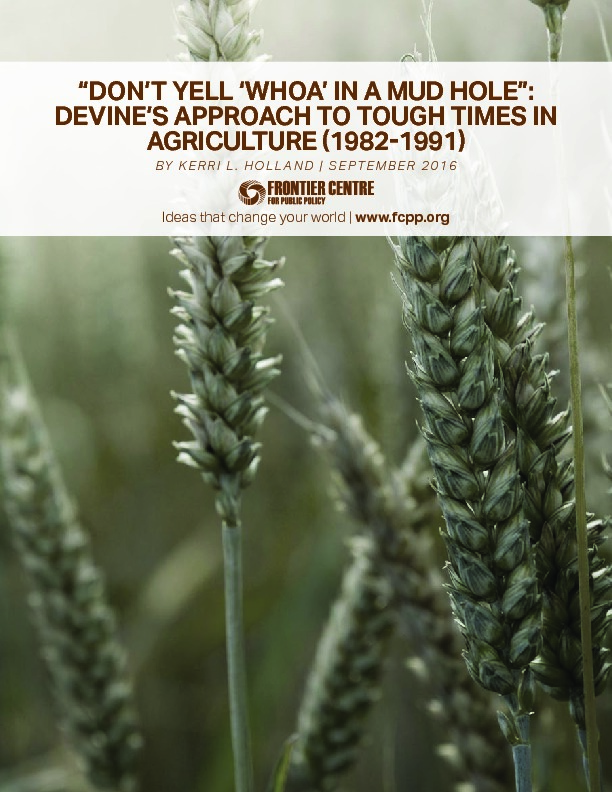Kerri L. Holland
The primary objective of agricultural diversification is to facilitate economic stability and prosperity for the agricultural industry and the larger economy. Moreover, the topic of diversification is best understood within the broader discussion of agricultural sustainability and its related economic, social, and environmental goals. Efforts to promote diversification in commodity production and the agricultural economy have been sustained on the policy agenda of consecutive Saskatchewan governments.
The opportunity to focus exclusively on one area of a government’s public policy provides a greater understanding of the government’s priorities, the context in which decisions were made, and the style of governing and leadership that existed. This paper is part of a larger series that analyzes several policy areas of the Progressive Conservative government led by Premier Grant Devine from 1982-1991. These papers will form a more holistic assessment of the Devine government’s legacy and provide lessons current policymakers can utilize.
Main objectives for this study have been to examine the policy approach of the Devine government towards agriculture, focusing largely on its attempts to diversify the industry; to connect the topic of agricultural diversification to the discourse on agricultural sustainability, analyze key industry trends, and identify impending challenges; and to highlight important take-aways to inform future policy analysis and policymaking.
This paper puts forth three central arguments. First, context is crucial for understanding how the policy environment shapes policy objectives and decision-making. Intergovernmental relations, the policy legacy of previous governments, goals in other policy areas, fiscal restraints, international issues, public opinion, and current events, are some of the many factors within the policy environment that shape government action and the measures enacted.
Second, leadership is a critical determinant of policy action, especially in challenging economic times. Government action is ultimately a mixture of both reaction and vision. Despite governing during an economic recession, Devine’s government committed to implementing its political agenda by investing major public expenditures into numerous projects. The acceleration of policies and programs during economically difficult times reflects Devine’s leadership and governing style. Similar to any government, there are shortcomings that can be identified and criticisms that can be justified. However, Devine’s long-term vision of diversifying the agricultural industry through initiatives such as value-added industry, research, an technology, arguably represents some of his government’s greatest achievements.
Third, the analysis of trends and challenges within Saskatchewan agriculture underlines the fact that agricultural diversification is an important policy goal, but that it is only one of many strategies that can work effectively toward sustainability objectives. As the agricultural industry changes and evolves, new challenges emerge and policymakers must find the best mix of policy instruments that effectively respond to crisis as well as promote longer-term economic, social, and environmental goals. All governments are faced with a unique set of challenges and must establish their own agenda. How governments respond to obstacles before them, and how they commit to a vision, ultimately determine the legacy they leave behind.



